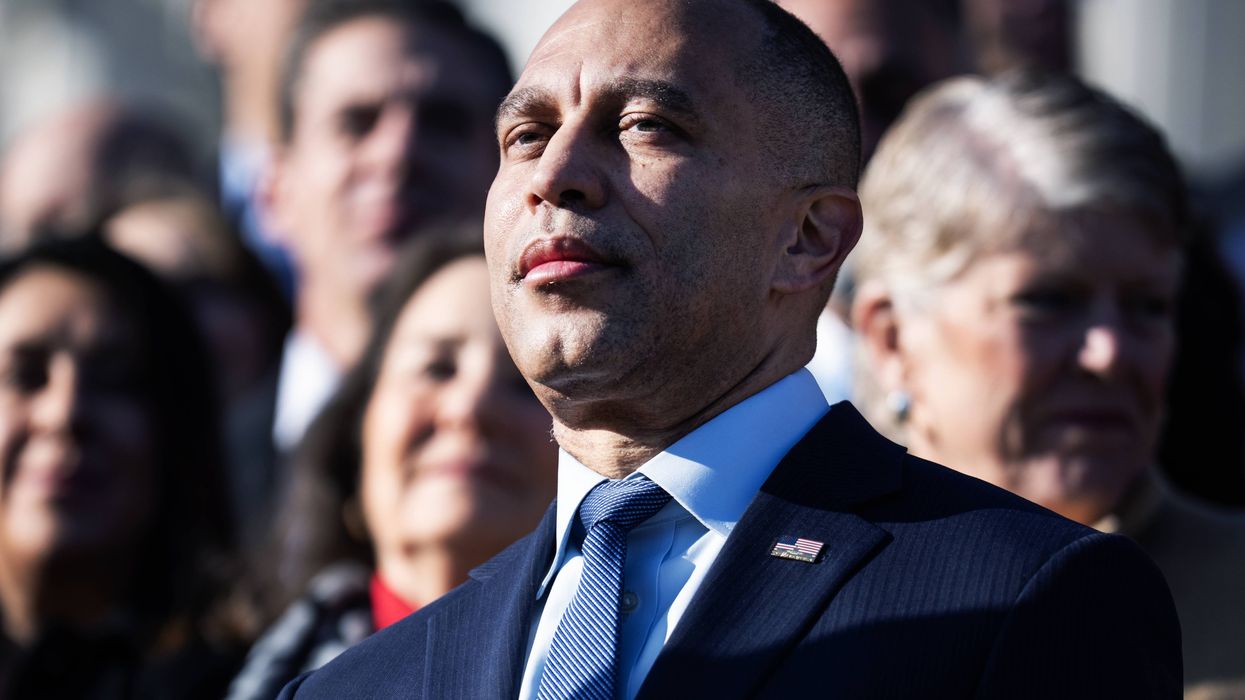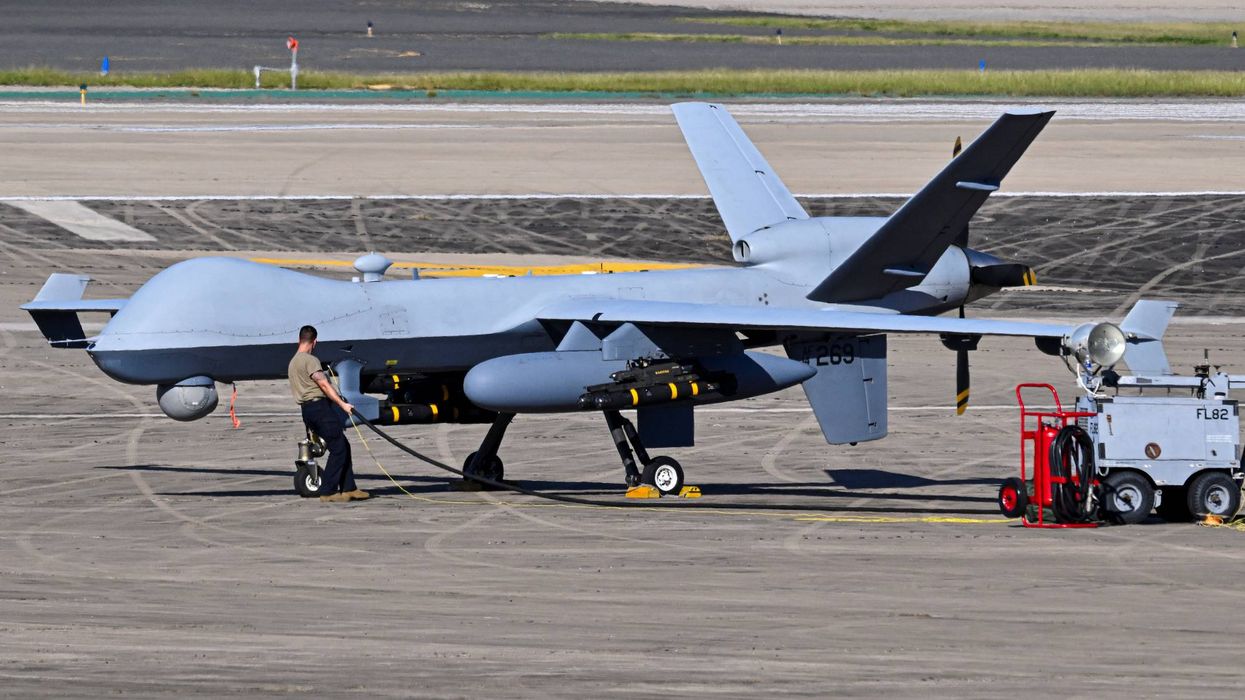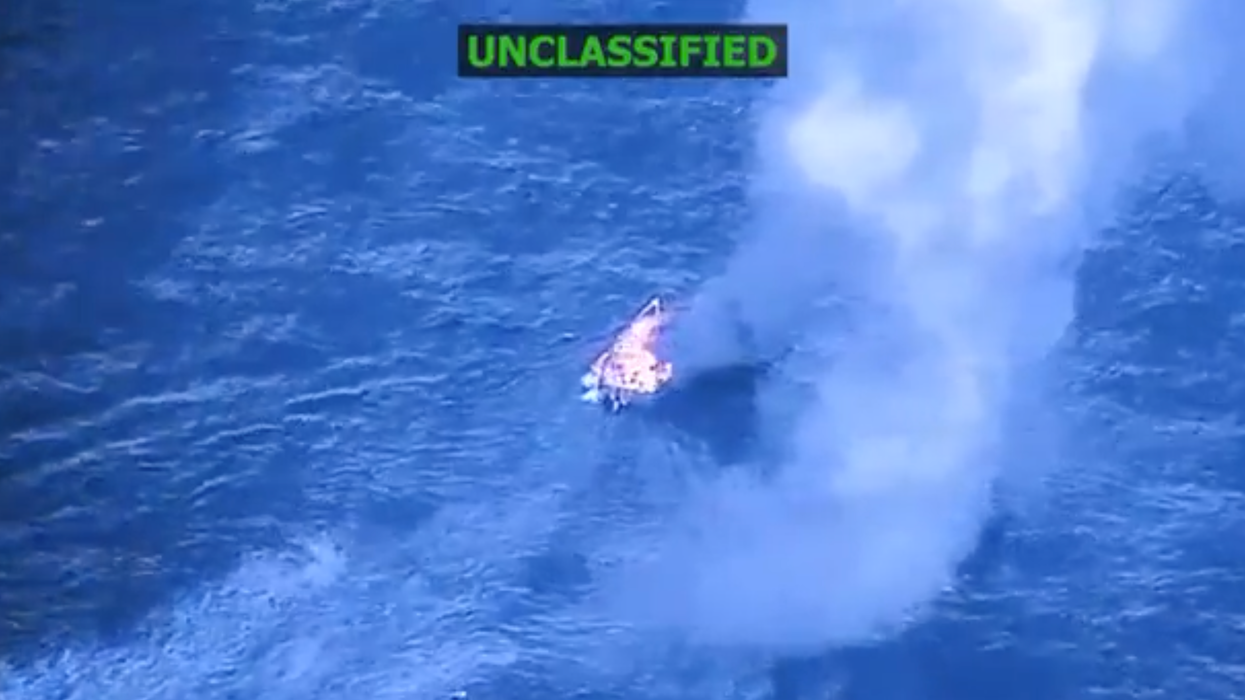December, 08 2008, 08:00am EDT

Somalia: War Crimes Devastate Population
Outside Powers Exacerbate Crisis Through Failed Policies
NAIROBI
All parties in the escalating conflict in Somalia have regularly committed war crimes and other serious abuses during the past year that have contributed to the country's humanitarian catastrophe, Human Rights Watch said in a report released today. Human Rights Watch urged the United States, the European Union, and other major international actors to rethink their flawed approaches to the crisis and support efforts to ensure accountability.
The 104-page report, "So Much to Fear: War Crimes and the Devastation of Somalia," describes how the Somali Transitional Federal Government (TFG), the Ethiopian forces that intervened in Somalia to support it and insurgent forces have committed widespread and serious violations of the laws of war. Frequent violations include indiscriminate attacks, killings, rape, use of civilians as human shields, and looting. Since early 2007, the escalating conflict has claimed thousands of civilian lives, displaced more than a million people, and driven out most of the population of Mogadishu, the capital. Increasing attacks on aid workers in the past year have severely limited relief operations and contributed to an emerging humanitarian crisis.
"The combatants in Somalia have inflicted more harm on civilians than on each other," said Georgette Gagnon, Africa director at Human Rights Watch. "There are no quick fixes in Somalia, but foreign governments need to stop adding fuel to the fire with misguided policies that empower human rights abusers."
Somalia has been without a functioning government since 1991, and a UN peacekeeping operation withdrew in failure in 1995. The years since have been violent and chaotic. In December 2006, Ethiopian military forces intervened to back Somalia's weak TFG against a coalition of Islamic courts that had won control of Mogadishu. In the past two years, the conflict has escalated dramatically, and internationally backed peace talks have failed to make any impact on the ground.
The report draws on interviews with more than 80 witnesses and victims of abuses, who described attacks by all the warring parties in stark detail.
Each party to the conflict has indiscriminately fired on civilian neighborhoods in Mogadishu on an almost daily basis, leveling homes without warning and killing civilians in the streets. Insurgent forces have regularly carried out ambushes and roadside bombings in markets and residential areas, and launched mortars from within densely populated neighborhoods. Ethiopian forces have reacted to insurgent attacks with indiscriminate heavy rocket and artillery fire, with devastating impact on civilians.
TFG security forces and allied militia have tortured detainees, and killed and raped civilians and looted their homes, sometimes in the context of house-to-house joint security operations with Ethiopian troops. Ethiopian forces, who were relatively disciplined in 2007, have been more widely implicated in acts of violent criminality this year. Insurgent forces have threatened and murdered civilians they view as unsympathetic to their cause and have forcibly recruited civilians, including children, into their ranks.
The full horror of these abuses can be captured only through the stories of Somalis who have suffered through them. Human Rights Watch interviewed teenage girls raped by TFG security forces, parents whose children were cut to pieces in their own homes by Ethiopian rockets, and people shot in the streets by insurgent fighters for acts as trivial as working as a low-paid messenger for TFG offices. One young man described watching a group of Ethiopian soldiers rape his mother and sisters in their home. "And I was sitting there helpless," he said. "I could not help my mother or help my sisters."
For many, the worst of it is being caught between all three sides at once. One young man was given an ultimatum by radical Islamist Al Shabaab fighters in his neighborhood to join them or face retribution. Days later, he came home from school to find that his mother had been killed and his house destroyed in an unrelated artillery bombardment.
"The world has largely ignored the horrors unfolding in Somalia, but Somali families are still left to confront violence that grows with every passing day," Gagnon said. "Even those who try to flee find that the violent abuses follow them."
Hundreds of thousands of Mogadishu's poorest residents, lacking the money to travel further, have congregated in sprawling displaced persons camps along the Mogadishu-Afgooye road, but the indiscriminate fighting they fled has followed them there.
Tens of thousands of Somali refugees have also fled the country this year. Kenya's Dadaab refugee camps are now the largest concentration of refugees anywhere in the world, with nearly 250,000 inhabitants. But the journey itself is perilous. Human Rights Watch interviewed many refugees who had been robbed, raped, or beaten by freelance militias as they fled Somalia. Kenya's border with Somalia is closed, leaving refugees at the mercy of abusive smugglers and corrupt Kenyan police.
Hundreds of Somalis have drowned trying to cross the Gulf of Aden to Yemen, often after being forced overboard or abandoned at sea by traffickers.
The United States, the European Union, and governments in the region have taken few positive steps to address the worsening situation in Somalia, and have too often taken actions that have made it worse.
Ethiopia is a party to the conflict, but has done nothing to ensure accountability for abuses by its soldiers. The United States, treating Somalia primarily as a battlefield in the "global war on terror," has pursued a policy of uncritical support for transitional government and Ethiopian actions, and the resulting lack of accountability has fueled the worst abuses. The European Commission has advocated direct support for the transitional government's police force without insisting on any meaningful action to improve the force and combat abuses.
In recent months, the conflict has increasingly spread into neighboring regions and countries in the form of bombings and other attacks - precisely what Ethiopia's military intervention in 2006 sought to prevent. During the latter half of 2008, there have been suicide bombings in the previously more stable semi-autonomous regions of Somaliland and Puntland, as well as rampant piracy on the high seas, and kidnappings across the border in Kenya.
"The Somali crisis is not just a nightmare for its people, it is a regional threat and a global problem," Gagnon said. "The world cannot afford to wait any longer to find more effective ways of addressing it."
Human Rights Watch called for a fundamental review of policy toward Somalia and the entire Horn of Africa in Washington, where the Obama administration will have an opportunity to break with the failed policies of its predecessor, and in European capitals. It also called for the establishment of a UN-sponsored Commission of Inquiry to investigate violations of international law, map the worst abuses, and lay the groundwork for accountability.
Human Rights Watch is one of the world's leading independent organizations dedicated to defending and protecting human rights. By focusing international attention where human rights are violated, we give voice to the oppressed and hold oppressors accountable for their crimes. Our rigorous, objective investigations and strategic, targeted advocacy build intense pressure for action and raise the cost of human rights abuse. For 30 years, Human Rights Watch has worked tenaciously to lay the legal and moral groundwork for deep-rooted change and has fought to bring greater justice and security to people around the world.
LATEST NEWS
Democrats to Spotlight Trump Election Threats at January 6 Hearing
A panel aimed at fighting GOP efforts to "rewrite history" regarding the US Capitol attack will also "examine ongoing threats to free and fair elections posed by an out-of-control Trump administration."
Dec 30, 2025
At a hearing on the fifth anniversary of the January 6, 2021 attack on the US Capitol next week, House Democrats plan to look back as well as forward—countering Republicans' efforts to "rewrite history and whitewash" the attempted insurrection by President Donald Trump's supporters and warning of the GOP's threats to upcoming elections and to US democracy.
The event next Tuesday will be an unofficial one, as Democrats are in the minority and do not have the authority to call formal hearings.
House Minority Leader Hakeem Jeffries (D-NY) said in a Dear Colleague letter to other lawmakers on Monday that the hearing would shed light on the "toxic priorities" of Trump, who after taking office in January issued blanket pardons for nearly 1,600 people who were charged in connection to the January 6 attack.
" Donald Trump promised to lower the high cost of living on day one of his presidency," wrote Jeffries. "One year later, costs are out of control, America is too expensive, and Republicans believe that the affordability crisis is a hoax. They have done nothing to lower costs for everyday Americans, but are gutting healthcare and enacted massive tax breaks for their billionaire donors."
While doing nothing to make life more affordable for families—and helping to make household grocery and electricity bills higher—Trump has pardoned hundreds of people who "brutally assaulted law enforcement officers" on January 6, including several who have been charged with new crimes and "a troubling number" who "have been arrested for child molestation, sexual assault, and kidnapping," said the Democratic leader.
"Republicans own the failed economy, their broken promise to lower costs, and the crime spree the dangerous criminals pardoned by the president have visited on our country," wrote Jeffries.
The mob on January 6 attempted to stop the certification of the 2020 election, which Trump had spent weeks at that point insisting had been stolen from him and which the president and his allies continue to deny was won by former President Joe Biden.
But Republicans including House Speaker Mike Johnson (R-La.) have made efforts to sanitize the attack, which took place after Trump held a rally urging his supporters to march "over to the Capitol building to peacefully and patriotically make your voices heard" and said they would see whether "Republicans stand strong for integrity of our elections."
After Trump took office this year, Johnson announced a new congressional subcommittee that would expose "the false narratives peddled by” the previous bipartisan panel that issued a report in 2022 about Trump's efforts to overturn the 2020 election results and his encouragement of the attack.
Rep. Bennie Thompson (D-Miss.), who led the bipartisan committee, will also oversee next Tuesday's hearing.
In addition to exposing "the election deniers who hold high-level positions of significance in the executive branch," wrote Jeffries on Monday, the panel "will examine ongoing threats to free and fair elections posed by an out-of-control Trump administration."
The president has pushed Republican-led state legislatures in Texas, Missouri, North Carolina, and other states to draw new congressional maps to help the GOP maintain power in the 2026 midterm elections.
He signed an executive order in March that purported to require proof of citizenship for people who register to vote—an effort that was blocked by a federal judge in October—and the US Department of Justice has sued several states to compel them to share voter registration data with the federal government.
Legal experts have emphasized that the president does not have the authority to change how elections are run, despite Trump's continued efforts.
Jeffries said the January 6th Select Committee would join Thompson in leading the hearing, which is scheduled for 10:00 am Eastern time next Tuesday.
Keep ReadingShow Less
'This Is an Act of War': CIA Carried Out Drone Strike on Port Facility Inside Venezuela
One expert called the reported drone strike a "violation of Article 2(4) of the UN Charter and the Take Care Clause of the Constitution."
Dec 30, 2025
The US Central Intelligence Agency reportedly carried out a drone strike earlier this month on a port facility inside Venezuela, marking the first time the Trump administration launched an attack within the South American country amid a broader military campaign that observers fear could lead to war.
CNN on Monday was first to report the details of the CIA drone strike, days after President Donald Trump suggested in a radio interview that the US recently took out a "big facility" in Venezuela, prompting confusion and alarm. Trump authorized covert CIA action against Venezuela in October.
According to CNN, which cited unnamed sources, the drone strike "targeted a remote dock on the Venezuelan coast that the US government believed was being used by the Venezuelan gang Tren de Aragua to store drugs and move them onto boats for onward shipping."
To date, the Trump administration has not provided any evidence to support its claim that boats it has illegally bombed in international waters were involved in drug trafficking. No casualties were reported from the drone strike, and the Venezuelan government has not publicly commented on the attack.
"This is an act of war and illegal under both US and international law, let’s just be clear about that," journalist Mehdi Hasan wrote in response to news of the drone strike.
Brian Finucane, senior adviser with the US Program at the International Crisis Group, called the reported drone attack a "violation of Article 2(4) of the UN Charter and the Take Care Clause of the Constitution."
"Seemingly conducted as covert action and then casually disclosed by POTUS while calling into a radio show," he added.
CNN's reporting, later corroborated by the New York Times, came after the Trump administration launched its 30th strike on a vessel in international waters, bringing the death toll from the lawless military campaign to at least 107.
The Times reported late Monday that "it is not clear" if the drone used in last week's mission "was owned by the CIA or borrowed from the US military."
"The Pentagon has stationed several MQ-9 Reaper drones, which carry Hellfire missiles, at bases in Puerto Rico as part of the pressure campaign," the Times added.
Keep ReadingShow Less
30th Strike in Trump's High-Seas Kill Spree Claims 2 More Lives
At least 107 people have been killed in US bombings of boats that the Trump administration claims—without evidence—were involved in narco-trafficking in the Caribbean Sea and Pacific Ocean.
Dec 29, 2025
The US military said Monday that two alleged drug smugglers were killed in the bombing of another boat in the eastern Pacific Ocean, but—as has been the case throughout 30 such strikes—offered no verifiable evidence to support its claim.
US Southern Command (SOUTHCOM) said on X that, on orders from Defense Secretary Pete Hegseth, "Joint Task Force Southern Spear conducted a lethal kinetic strike on a vessel operated by Designated Terrorist Organizations in international waters."
"Intelligence confirmed the vessel was transiting along known narco-trafficking routes in the eastern Pacific and was engaged in narco-trafficking operations," SOUTHCOM added. "Two male narco-terrorists were killed. No US military forces were harmed."
According to the Trump administration's figures, at least 107 people have been killed in 30 boat strikes since early September. The administration has tried to justify the strikes to Congress by claiming that the US is in an “armed conflict” with drug cartels, while legal scholars and Democratic US lawmakers counter that the bombings are likely war crimes.
War powers resolutions aimed at reining in President Donald Trump’s ability to extrajudicially execute alleged drug traffickers in or near Venezuela failed to pass the Senate in October and the House earlier this month.
Monday's strike came amid Trump's escalating aggression against Venezuela, including the deployment of warships and thousands of US troops to the region, authorization of covert CIA operations targeting the country's socialist government, and threats to launch ground attacks.
Trump claimed Monday without providing evidence that US forces destroyed a "big facility" in an unspecified country where narco-traffickers' "ships come from."
Keep ReadingShow Less
Most Popular


